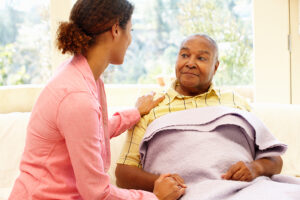How to Know Your Senior Needs In-Home Care Support

In-Home Care in South Brunswick NJ
Aging is a natural life process that should be carefully planned to prevent inconveniences. While most people don’t want to think about aging or in-home care, having a plan goes a long way to ease unpleasant surprises down the road. Whether preparing for an older loved one or your care, knowing the signs and symptoms of aging-related challenges is critical. Everyday routines start becoming a challenge because of poor memory or difficulty in execution. If you are unsure about in-home care, here are signs to look for.
Forgetfulness
A missed doctor’s appointment or dose of medicine might not raise concerns if it happens once. However, frequent forgetting can lead to consequences, such as health complications, missed bills, security issues, and unexplained bank withdrawals. Many people start forgetting things with age, leading to Alzheimer’s or dementia. The best way to mitigate such scenarios is to hire an in-home care service. A trained professional on the premises ensures your loved one gets the care they need and still engages in daily activities.
Poor Personal Hygiene
Poor hygiene is an obvious sign that your older loved one needs help, especially if it started recently. Many people don’t want to admit they can’t take care of themselves, which results in the deterioration of personal grooming. If you always notice unbrushed teeth, unkempt and dirty hair, foul body odor, and dirty clothes, it is time to call a professional. Ignoring these signs can affect the overall health and well-being of your loved one, and that’s why in-home care is an excellent choice.
Poor Housekeeping and Landscaping
People have different degrees of tolerance regarding the acceptable level of cleanliness. Even though everyone has their version of hygiene, when standards fall below the norm, it can cause concerns. Whether it is stacks of newspapers, more clutter, piles of dirty laundry, or foul smells indoors, it may be a sign the older adult is struggling. Additionally, a lawn that stands out because of overgrown bushes and uncut grass indicates your senior can’t accomplish maintenance alone.
Improper Nutrition
Most seniors don’t prepare regular meals and usually opt for pre-prepared or easy-to-make foods. These alternatives are not always healthy and lack the nutrients required to maintain good health. Kitchen tasks are difficult for older people and are usually the culprit for improper nutrition. In-home care helps with all aspects of your loved one’s life, improving their mental, physical, and emotional well-being.
Depression and Isolation
In most cases, untrained individuals can’t detect signs of depression until the symptoms become more pronounced. If your loved one’s sleep patterns have changed drastically and they seem irritable, this can signify significant emotional and social changes. A professional in-home caregiver provides companionship and pertinent information to maintain a more balanced life for your older adult.
While the signs your loved one needs home care are not limited to the ones listed, they can help you pinpoint minor changes before things get out of hand. Schedule a consultation today with a professional and improve the quality of life for your loved one.
Reference:
https://www.health.com/family/in-home-senior-care
https://www.nia.nih.gov/health/what-are-signs-aging-parent-needs-help
If you or an aging loved one is considering in-home care in South Brunswick, NJ, please contact the caring staff at Care Street Home Care today. Call (732) 607-8870.
- Signs Your Senior Parent Needs Home Care Assistance - January 17, 2025
- Hearing Rehabilitation: Empowering Seniors for Better Living - January 10, 2025
- Understanding How Cartilage Changes Over the Years - January 3, 2025
